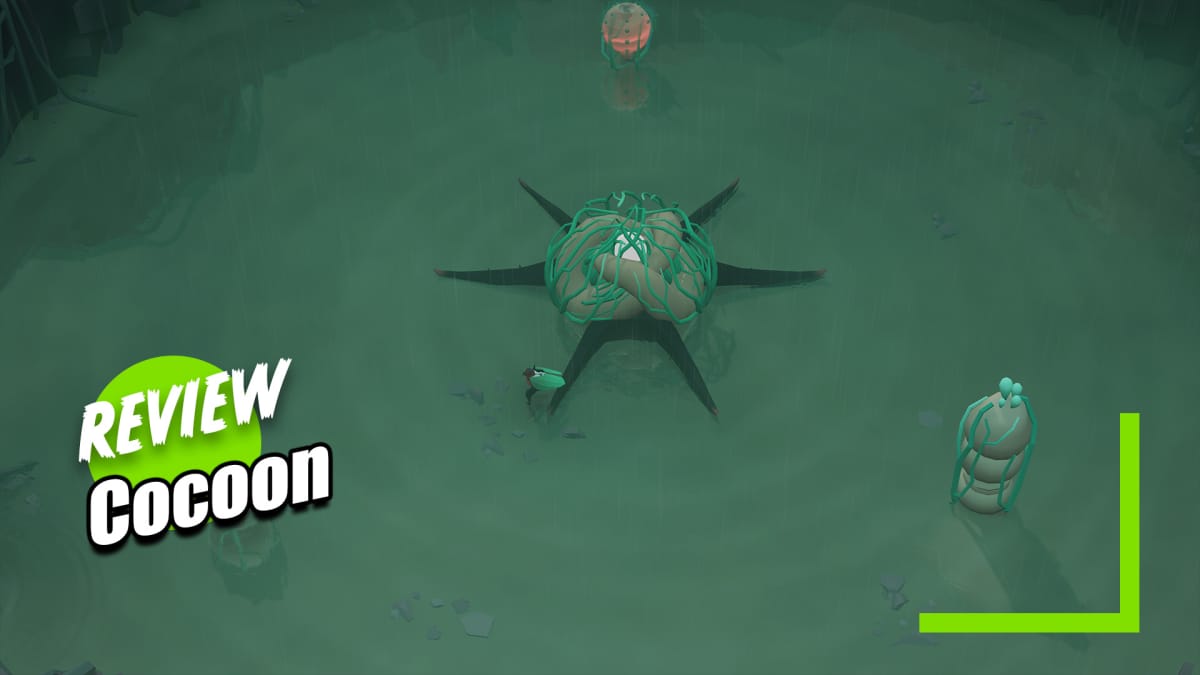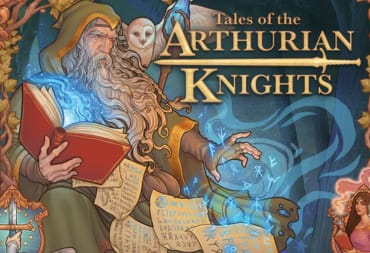Every now and then, you get a puzzle game that perfectly uses the gaming medium to create a whole new kind of puzzle that’s as engaging as it is clever. I didn’t plan to write a Cocoon review, but after playing it on Xbox Game Pass, I couldn’t stop—and now here we are.
You play as a little bug creature in a cosmic universe, and you carry little orbs on your back. These orbs are living worlds that you can hop into, and you can bring other orbs inside, creating a worlds-within-worlds sort of scenario.
I wanted to give this Cocoon review the subtitle "Atlas Bugged" instead of "A World Within Worlds of Intrigue" because I’m a writer and like dumb puns. But it's such a brilliant experience that I didn’t want to mistakenly convey that this is a buggy game.
For puzzle game fans, Cocoon is an absolute must-play title. For puzzle-curious folks, it has the same broad, engaging appeal that games like Portal or Professor Layton have. It’s not obtuse in the slightest, and there’s an intrinsic satisfaction that matches the same mental highs as landing a complex combo string in a fighting game.
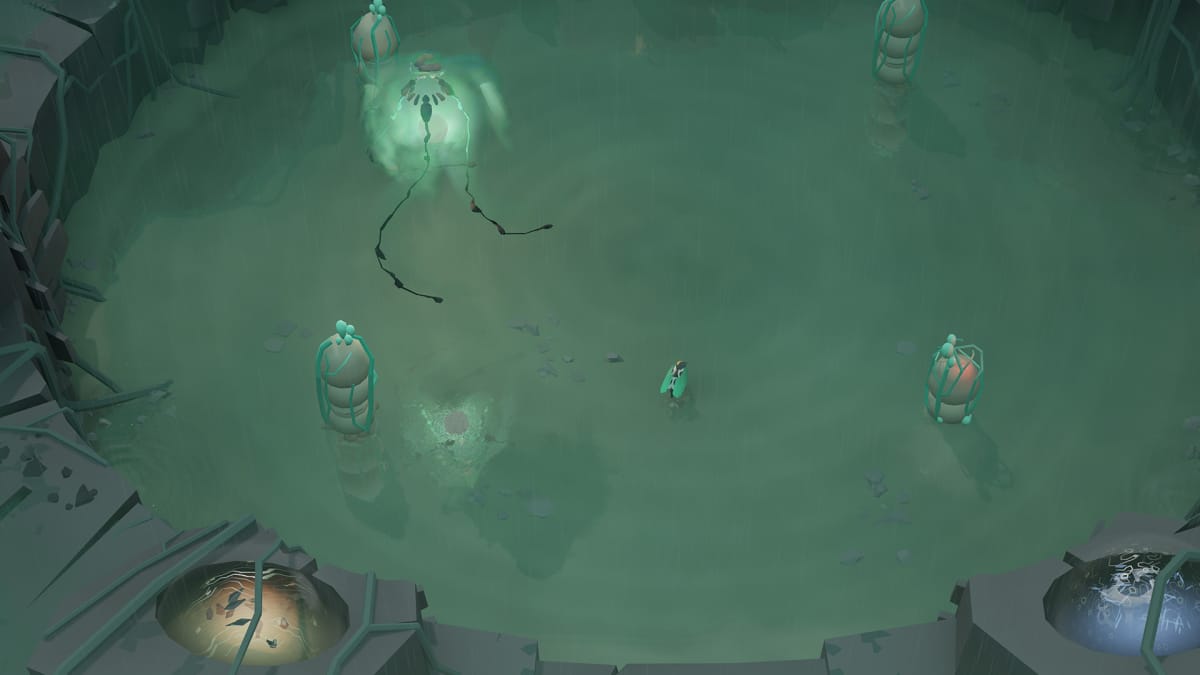
Simply Perfect
Cocoon starts off a bit slow, easing you into its basic mechanics. Really on the face of it, there are only a couple of controls. You move around, you press a button to interact, or you hold that same button to do a different interaction.
That’s all you need, making it extremely approachable. It isn’t until you zoom out for the first time and realize that the world you started in is just one of many. And this isn’t like a UI element where you select a stage or something. You see the world in front of your character, a shiny red orb that you can carry.
All the puzzles, from a mechanical perspective, are pretty straightforward. Put the orb on this pedestal to activate the elevator or open that door. It’s the obstacles between you and the solutions that create tension—and intrigue.
Each world in Cocoon has a boss, and defeating that boss unlocks a power. For example, that red orb lets you see and walk on invisible pathways while carrying it. The green orb lets you shift platforms between an ethereal plane and the real world.
The game gently nudges you in the right direction, but it never feels like it’s explicitly guiding you.
As you play, you start codifying the rules of the game in your head. For example, if the red orb reveals platforms, then there likely won’t be invisible platforms in the red world, simply because you can’t bring the orb into itself. It’s simple logic, after all. But Cocoon isn’t afraid to break those rules in genius ways, either.
When you only have one orb to work with, the challenges are pretty surface-level. But once you get multiple orbs, everything starts to click into place while the stiff logic in your brain breaks a little.
Because now you have to think, how do I get this ethereal-swapping power into a different world? If there are invisible red pathways between me and the exit, how do I get the green orb over there?
There are many points where you’ll pause, think a little, and rewrite your understanding of the rules. But when you look back on your progress, you’ll see that there was always only one way to proceed—the synapses in your brain just didn’t yet have the logical connections that make it so obvious.
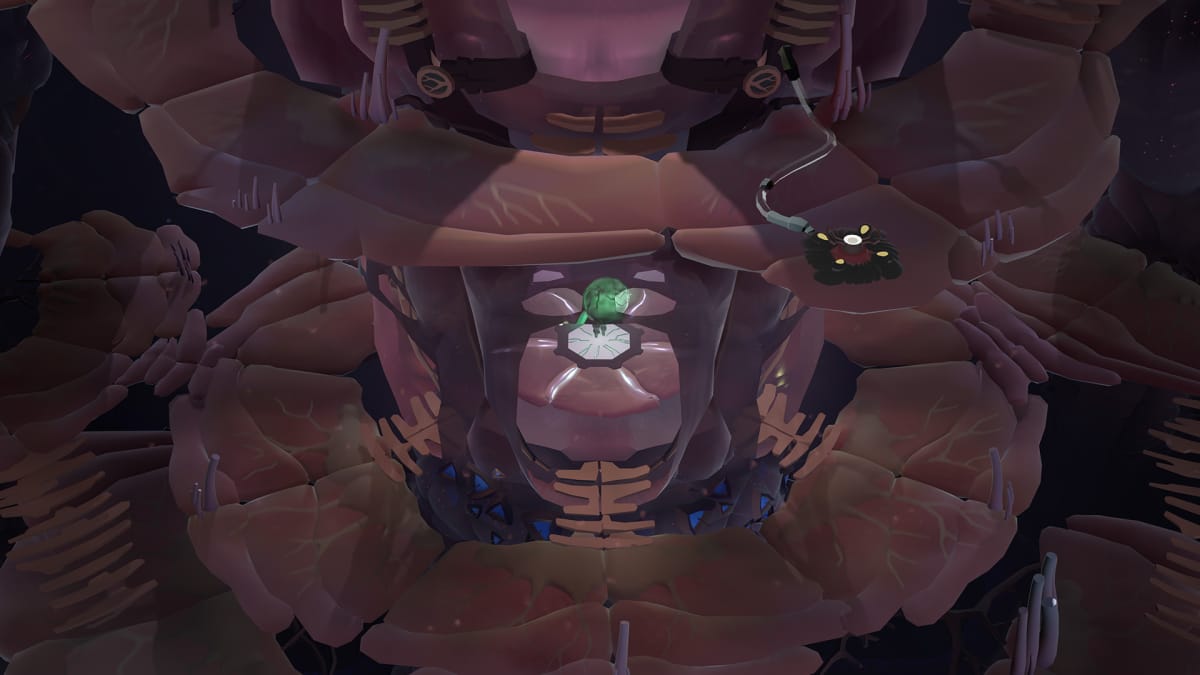
The Joy of Discovery
Cocoon results in a series of eureka moments that make you feel both like an idiot for missing the solution and a genius for figuring it all out. It constantly builds on what you’ve learned, and it always expands the limits of what you thought was possible.
Those moments where everything falls into place are what really spark joy in the puzzle genre, and the worlds-within-worlds twist makes the journey to those answers all the more winding—and satisfying.
Once you’re working with four orbs, that's when the game really starts cooking. To solve a puzzle in one world, you need to take another world off the table by carrying its orb around. There's just enough variety to create interesting choices, but you'll always have an idea of what to do.
Cocoon signposts each puzzle pretty well, with clearly defined colors and an aesthetic language that almost always put you on the right track. You might not get the full solution at first blush, but you’ll almost always know the first step.
You’ll think, “Surely I've figured out this whole video game.” And then it swerves, surprises, and delights.
Along the way, the game gently nudges you in the right direction, but it never feels like it’s explicitly guiding you. You’re following its lead, learning its language, and anticipating what’s next.
Luckily, if you hit a wall, you won’t be stuck there for long. Throughout the game, the way behind you closes, so you don’t have to worry about backtracking in case you missed something two hours ago. The solution is almost always in front of you (or sometimes it’s in the world above you); you just have to see it.
I know this sounds vague, but Cocoon revels in the simple joy you get from understanding the depths of its mechanics. It can seem complex on paper, but by the time you get to the final act, you’ll be like a savant, speaking a language that you only understand in the moment. The pace is fairly relaxed, but after a while, you won’t want to put it down until you’re done.
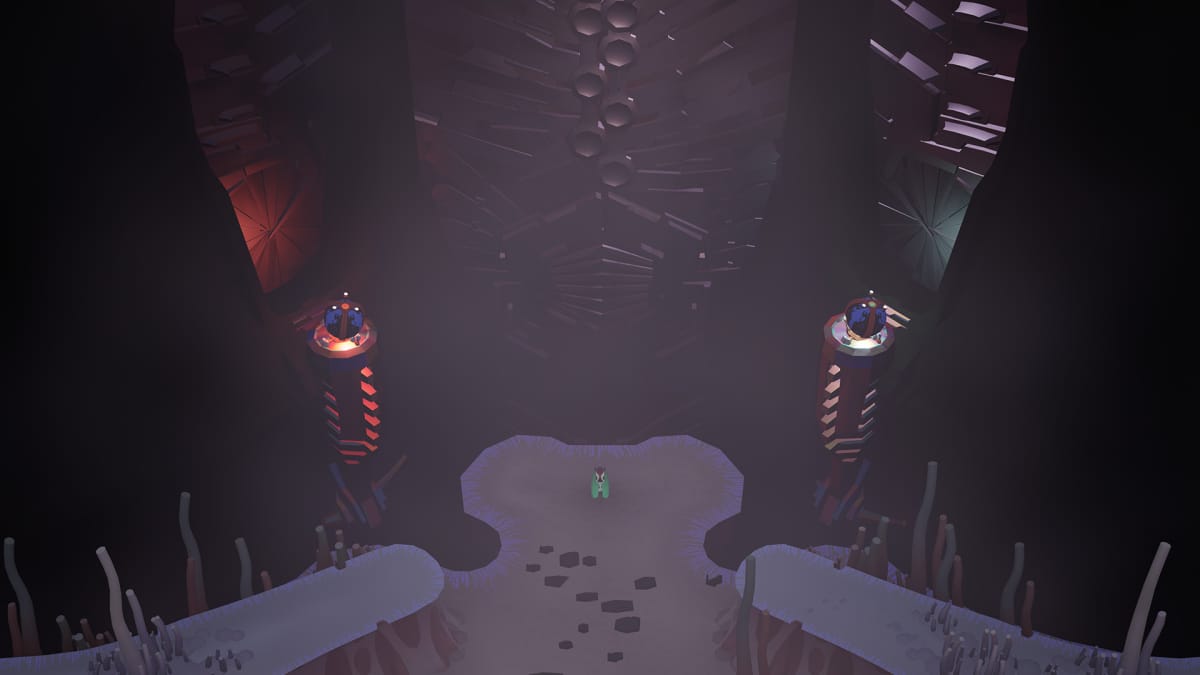
Cocoon Review | Final Thoughts
Cocoon has a certain magic to it. The moment you start seeing the layered world's gimmick, you think you’ve got your mind wrapped around it. You’ll think, “Surely I've figured out this whole video game.” And then it swerves, surprises, and delights.
I rolled credits after roughly five hours, and though your mileage may vary, it’s fair to say this is a tight, intentional experience, which is a breath of fresh air amid all the lengthier games out there.
If you’re the sort of person who checked out games like Portal because of the buzz, Cocoon deserves that same level of pedigree and recognition. It’s a fun brainteaser that doesn’t overstay its welcome and engages from start to finish.
Cocoon was reviewed on Xbox Series X via Xbox Game Pass over the course of 5 hours of gameplay - all screenshots were taken during the process of review.
Review Summary
Pros
- Constant stream of ‘eureka’ moments
- Intrinsically satisfying, unique puzzle mechanics
- Effective signposting with beautiful aesthetics
Cons
- Might put off folks with fear of bugs
- Music is alright but not too memorable
Have a tip, or want to point out something we missed? Leave a Comment or e-mail us at tips@techraptor.net
